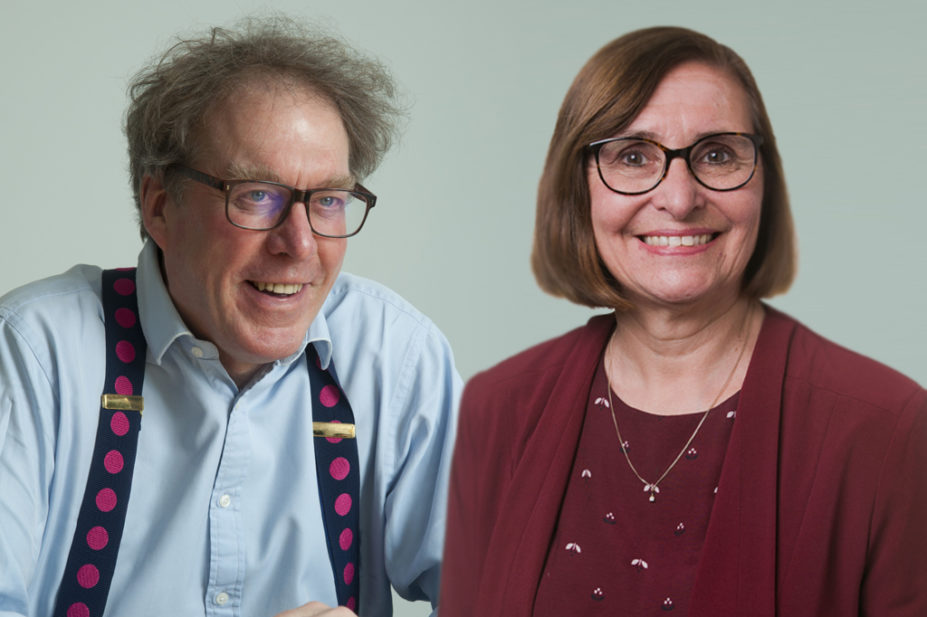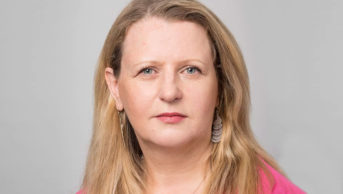
Charlie Milligan / Jane Dacre
The final report from the UK Commission on Pharmacy Professional Leadership, published on 6 February 2023, contained some far-reaching recommendations for the future of pharmacy.
Authored by commission co-chairs Dame Jane Dacre, former president of the Royal College of Physicians, and Nigel Clarke, former chair of the General Pharmaceutical Council, the report called on all pharmacy leadership bodies to form an “inclusive federation” to implement a five-year strategy on setting professional standards, education and training, and providing a “coordinated and authoritative voice” to influence national policy development and improve patient care.
The report proposes that the new federation — the ‘Pharmacy Leadership Council’ — will be formed of representatives from the Royal Pharmaceutical Society (RPS), the Association of Pharmacy Technicians UK (APTUK), the Pharmacy Forum Northern Ireland and other specialist clinical pharmacy associations. It will also have an independent chair and other expert members.
The Pharmaceutical Journal interviewed the co-chairs about their thinking behind the report and what they regard as the biggest challenges for its implementation.
What should a jobbing pharmacist, trying to survive the next week or month, expect from this report?
Jane Dacre (JD): They should feel positive about an exciting future. The time has come for pharmacists to be empowered and have a more unified voice in the healthcare environment.
It has to start now, but because of the distance to travel, it will take five years to get there
Dame Jane Dacre, co-chair of the UK Commission on Pharmacy Professional Leadership
Nigel Clarke (NC): I share that. Public expectations of pharmacy are changing quite markedly, accelerated by COVID-19. A professional body really needs to support people to augment their skills, improve them and acquire them in the first place.
Don’t pharmacists need that support now? Is five years too long?
JD: Absolutely, it has to start now, but because of the distance to travel, it will take five years to get there. There is a large number of small pharmacy professional specialist groups, who are not coordinated, and need to work together in order to achieve a ‘corporate view’ of themselves.
We would like to click our fingers and for it to happen tomorrow, but were realistic and we think that it will take a little bit of time to bed in and for people to not feel threatened about the change.
NC: It needs to be an inclusive body, in a way that the existing professional bodies have not been, and that’s not going to happen overnight. A change of voice, a change of tone and starting to appear on public stages more often — so when there is a discussion going on about medicines, someone from the professional body ‘apparatus’, as it were, is there on radio or television.
As a pharmacist, how will this make a difference to the way I work day to day?
JD: It will provide hope. We would like to create something that makes pharmacists feel proud in their profession, getting pharmacists noticed, to be part of the solution for the crisis that there is in the health service. Then, as time moves on, opportunities for pharmacists with a particular interest outside their day job; to get involved in writing standards, scope of practice, joining educational initiatives, and those kinds of things. Opening the doors for younger pharmacists who haven’t previously felt that it was relevant for them. That can happen straight away.
NC: To be properly heard at a national level, so that when people have good ideas for the development of services in various shapes and forms, they get drawn to the attention of the powers that be by the professional body as a clear example of best practice. So that isn’t just a case of somebody turning up in an award ceremony every year, everyone clapping, and then they go home and nobody else pays any attention.
This is a top-down approach in terms of professionalism, but during COVID-19 the wonderful thing was it was bottom up, with professionals working together for the benefit of patients. How does this vision fit with that?
JD: We want to see professionals being empowered, but currently they work against each other. We would like to create an environment where the whole becomes greater than the sum of the parts, where professional groups with their innovative ideas, work together, share good practice and roll it out, as opposed to each person doing it individually within their own microcosm. It’s to build on the response to COVID-19 and make it more effective by coordinating it better.
I do not know of any royal college where council members are appointed by the NHS. Is it not a conflict that the NHS’s chief pharmaceutical officers are appointing people on to the Pharmacy Leadership Council you have proposed?
NC: That’s strictly transitional, you might give the Royal College of Physicians (RCP) as an example of where the end-game looks here.
JD: Ideally, no. But you’ve got to start somewhere. I was president of the RCP and we had a council that had a number of elected members, and then there were a number of people who are appointed by the college because of their particular expertise — for example, the treasurer. There is no single recipe for doing it, but I think the important thing is that, eventually, the council owns the professional body, and the people on the professional body are appointed or elected by that council.
It’s very tempting for me to give a blueprint, but that’s really got to come from within pharmacy itself, but based, perhaps, on guidance from other professional leadership bodies.
Medical royal colleges do sometimes speak against what’s happening in the NHS, so it is an unusual arrangement.
JD: Yes. You would want your professional leadership body to be both independent of thought and financially. Because otherwise it would become difficult to speak truth to power in the way that you need to. So that’s absolutely the aim.
Nigel, you chaired the transitional committee to prepare for when the Royal Pharmaceutical Society of Great Britain was divided in 2010. Do the problems you outline stem back to this? Was there enough thinking then?
NC: Not entirely. First, there was a missed opportunity to involve pharmacy technicians properly in the leadership body. There was a clear recommendation that there should be associate memberships for pharmacy technicians, which was rejected by the body at the time.
Second, if we got something wrong it was a slightly overcomplicated structure for the RPS Assembly. Because of the way the NHS has developed with devolution, you had to be able to deal with English, Scottish, Welsh, Northern Irish NHS systems. But a lot of pharmacy issues are not separated by nation.
This is a way, in a sense, resetting the button 13 years later and saying where we are now, where healthcare has gone, there is actually a need for a common voice. Where you bring together all the various bodies — the oncology, mental health pharmacists, UK Clinical Pharmacy Association, the pharmacy technicians, and so forth — to be part of a collective voice, which is much more powerful. I think the RPS assembly has not really succeeded in that respect.
A professional body is not a trade union and needs to be separate from it
Nigel Clarke, co-chair of the UK Commission on Pharmacy Professional Leadership
The report does not look at funding, or workforce, and they’re probably much bigger barriers to develop as a professional and improve patient care. Why?
NC: First, this is a professional body, not a trade union or a trade association. And the issue of funding, especially in community pharmacy, is a trade association issue. If there is behind that, for example a service that ought to be being paid for because it is going to deliver better healthcare to the population, I’m sure the professional body’s got something to say about that. On pay and conditions for pharmacists, well, those are trade union issues. And there has been a bit of a blurring of the lines for pharmacy, which hasn’t helped. A professional body is not a trade union and needs to be separate from it.
JD: Workforce is not just a pharmacy problem. To have a strong professional body that works with other professional bodies that highlights patient safety issues — because of a lack of workforce, for example — is a very powerful thing. Because what you’re doing is looking at the quality, the standards within the service and the delivery of care to patients. Not self interest.
NC: You put your finger on an absolutely fundamental issue though. At the end of the day. You want people wanting to become pharmacists, you want people to want to stay in the profession, you aren’t maintaining your workforce.
Jane, I don’t know how familiar you were with pharmacy before you did this piece of work, but what struck you while you were doing it?
JD: What struck me was people’s genuine desire for change, and to work together collaboratively and positively. Mainly, I’ve worked with pharmacists as a jobbing doctor in hospitals, particularly during COVID-19 where the pharmacists were absolutely brilliant. But, in getting to know pharmacists during this work, there is a genuine desire to do something good for the profession, which is very laudable.
During the five years, the bodies forming the proposed Pharmacy Leadership Council will be autonomous, but working together, but who will actually set the standards?
JD: The detail has got to be worked out by the council. But if you use the RCP model, the most appropriate person to set those standards sets them, the council then approves them. And then there’s overall quality assurance of that process by the regulator.
Often, when I’m talking to pharmacists, the main thing preventing them from developing as a professional is not necessarily a lack of formal training or education — it is actually the need for support in the workplace, through peer support groups, etc. How will this help that?
JD: I think it will, because it’ll provide a forum and a safe space that’s outside the working environment, where people can get together. Certainly, during my professional career when things have been tricky, in my trust, I have gone to the professional body to seek solace, see like-minded people to discuss issues, to discuss problems, and to move forward knowing that I have the support of colleagues. And that, I have to say, has been a huge benefit to young physicians during their careers. And I would hope it would be the same for young pharmacists.
NC: I think traditionally that’s been true in some trusts, but not all; and not so true, the further away from trusts you go. For example, for a lot of pharmacists who went into primary care when there was big expansion, they really didn’t have a network of people to talk to apart from the Primary Care Pharmacy Association. And I suspect that some of the problems that arose were because people didn’t get a chance to get home at the end of the day, ring somebody and say: “Look, I really don’t know about this. Have you got any experience?”


